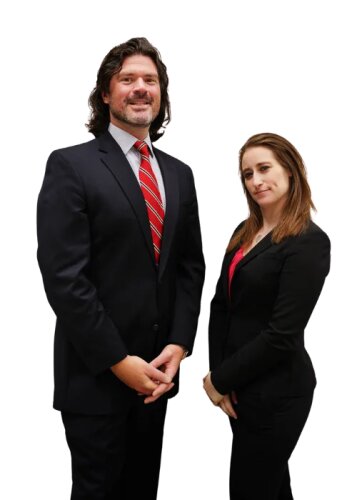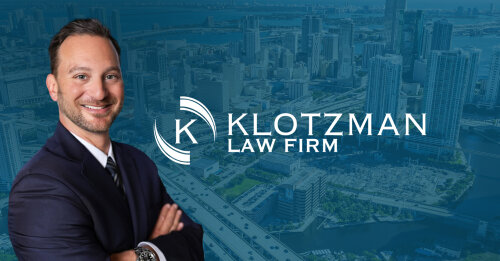Best Ethics and Professional Responsibility Lawyers in New York City
Share your needs with us, get contacted by law firms.
Free. Takes 2 min.
List of the best lawyers in New York City, United States
1. About Ethics and Professional Responsibility Law in New York City, United States
Ethics and professional responsibility law governs how solicitors and attorneys behave in practice. In New York City, the framework is centered on the Rules of Professional Conduct (RPC), which set the standards for loyalty, confidentiality, conflicts of interest, competence, and fair dealing. The RPC is the primary source of ethical obligations for NY lawyers.
The rules are enforced through a formal discipline system administered by the New York court system and its disciplinary bodies. When a complaint is filed, attorneys may face investigations, hearings, and possible sanctions such as suspension or disbarment. This process can impact a lawyer's license to practice in Manhattan, Brooklyn, Queens, the Bronx, and all other New York City jurisdictions.
In addition to the RPC, New York City lawyers often rely on ethics opinions from state and local bar associations to interpret and apply the rules to new situations. These opinions provide practical guidance for issues like social media advertising, fee arrangements, and client trust accounting. Always confirm guidance with official sources, as interpretations can evolve with changes in law and technology.
“The Rules of Professional Conduct govern the ethical obligations and professional conduct of attorneys admitted to practice in New York.”
Sources you can consult for the official framework include government and official organization sites that describe the RPC and the corresponding disciplinary processes.
- New York Rules of Professional Conduct (RPC) - Official source
- New York State Bar Association
- New York City Bar Association
2. Why You May Need a Lawyer
Ethics and professional responsibility issues can arise in many real world NYC settings. A qualified attorney who specializes in ethics can help protect your rights and reputation while navigating complex procedures.
- New client complaint or bar grievance against you in Manhattan or another NYC borough. An ethics attorney can help you respond, gather evidence, and present a proper defense to avoid suspension or disbarment.
- Conflicts of interest involving multiple clients in a single NYC case. An attorney can assess whether a concurrent representation is permissible and help you with waivers or withdrawal if needed.
- Allegations of misappropriation of client funds or improper trust account handling. A lawyer can guide you through corrective steps and represent you in disciplinary proceedings.
- Advertising or marketing that may violate RPC rules. An ethics counsel can review your campaigns for compliance and help you avoid misleading claims or testimonials.
- Fees and billing disputes with clients in NYC practice. A lawyer can advise on lawful fee arrangements, retainer terms, and refund obligations to prevent ethics violations.
- Possible sanctions from a disciplinary committee or court in a NYC matter. An ethics attorney can prepare a timely, strategic response and pursue appropriate relief like stay or stay of order when applicable.
3. Local Laws Overview
The core ethical framework binding attorneys in New York City is the Rules of Professional Conduct. In practice, the RPC is supplemented by the disciplinary process administered by the courts and state authorities. You should be aware of the following governing sources:
- Rules of Professional Conduct (RPC) - 22 NYCRR Part 1200 et seq. These rules outline duties on confidentiality, conflicts of interest, competence, and advertising. They apply to all attorneys admitted in New York, including those practicing in New York City.
- Judiciary Law and the Attorney Discipline System - The attorney discipline framework, including investigations and sanctions, operates under New York Judiciary Law and related court rules. This governs how complaints are processed and what remedies may be imposed by the courts.
- Local Ethics Guidance - NYC Bar Association and NYS Bar Association ethics opinions provide interpretation and practical guidance on how the RPC applies to modern scenarios such as social media, remote practice, and cross jurisdictional work. While not binding law, these opinions are highly influential in NYC practice.
Recent changes in ethical guidance reflect evolving practice technologies and client interactions. For example, updates addressing the use of digital communications, remote work, and client confidentiality in electronic environments have been incorporated into ongoing ethics discussions and formal opinions. Always verify current standards with official sources for the latest guidance.
“The Rules of Professional Conduct govern the ethical obligations and professional conduct of attorneys admitted to practice in New York.”
Key official and professional resources you can reference include:
- New York Rules of Professional Conduct - Official source
- New York State Bar Association - Ethics resources
- New York City Bar Association - Ethics opinions and guidance
4. Frequently Asked Questions
The questions below cover basic to advanced topics about Ethics and Professional Responsibility in New York City. If you need tailored guidance, consult a NYC ethics lawyer who can review your specific facts.
What is the New York Rules of Professional Conduct?
The RPC sets duties for lawyers admitted in New York, including confidentiality, conflicts, and competence. It guides how lawyers must handle client matters and interact with the public.
What happens if I am accused of ethics violations in NYC?
There is a formal process that may involve investigations, hearings, and possible sanctions. You should obtain counsel early to protect your rights and prepare a response.
What is a conflict of interest under New York ethics rules?
A conflict occurs when representing one client could materially harm another or when the attorney's own interests interfere. Conflicts must be disclosed and, in many cases, waived with informed consent.
Do I need to hire a NYC ethics attorney for a referral or complaint?
Not always required, but highly advisable. An ethics attorney can help you understand procedures, gather evidence, and present a credible defense or mitigation.
How long does attorney discipline typically take in New York?
Duration varies by case complexity and workload of the disciplinary authorities. Some matters conclude in a few months, others take a year or more with appeals possible.
What are the common forms of sanctions for ethics violations?
Sanctions may include private admonition, public censure, suspension, or disbarment. The severity depends on the facts, intent, and impact on clients.
Do I need to disclose conflicts to all clients in NYC matters?
Yes, you generally must disclose conflicts and obtain informed consent in writing when permissible. In some cases, conflicts require withdrawal.
Can I advertise my legal services in New York City?
Advertising must comply with RPC rules and avoid false or misleading statements. The NYC and NYS bars provide guidance on permissible marketing.
Is social media use governed by NYC ethics rules?
Yes, communications about cases or clients on social media must preserve confidentiality and avoid misrepresentations. Guidance exists in ethics opinions.
What is the timeline for responding to an ethics complaint?
Timelines vary by jurisdiction within New York. Prompt legal counsel can help you respond within the required deadline to preserve rights.
Do I need to hire local NYC counsel for ethics issues?
Local guidance matters because NYC courts may consider regional ethics opinions and practices. An NYC-licensed attorney is often best for case-specific advice.
5. Additional Resources
Accessing credible, official information can clarify your path. The following organizations provide authoritative ethics guidance and practical resources for New York City practitioners.
- New York State Unified Court System - Provides official information about attorney ethics rules, discipline processes, and court procedures. https://www.nycourts.gov
- New York State Bar Association - Offers ethics opinions, guidance, and continuing education for attorneys practicing in New York. https://nysba.org
- New York City Bar Association - Publishes ethics opinions and practical guidance for NYC lawyers on professional responsibility. https://www.nycbar.org
6. Next Steps
- Define your issue clearly - Write a concise summary of the ethics matter, including who is involved and the authority that faces the complaint. This helps you brief an ethics lawyer efficiently within 1-2 days.
- Gather key documents - Collect client communications, fee agreements, trust accounting records, and any advertising materials relevant to the issue. Organize them by date and topic for the initial meeting.
- Identify potential ethics counsel - Search for attorneys who practice ethics and professional responsibility in New York City. Look for track records with disciplinary matters, ethics opinions, or advisory practice areas similar to your issue.
- Schedule a confidential consultation - Contact at least 2-3 NYC ethics lawyers for initial meetings. Ask about fees, scope, and expected timelines during the first call or meeting.
- Prepare for the consultation - Bring your summary, documents, and questions. Prepare a list of outcomes you want to achieve and any deadlines you must meet.
- Discuss engagement terms - If selecting a lawyer, review engagement letters, fee structures, and communication expectations. Confirm who will handle your matter and how often you will receive updates.
- Set a realistic timeline - Expect initial responses within 1-2 weeks and potential disciplinary actions within several weeks to months depending on the matter. Your lawyer will provide a case-specific timeline.
Lawzana helps you find the best lawyers and law firms in New York City through a curated and pre-screened list of qualified legal professionals. Our platform offers rankings and detailed profiles of attorneys and law firms, allowing you to compare based on practice areas, including Ethics and Professional Responsibility, experience, and client feedback.
Each profile includes a description of the firm's areas of practice, client reviews, team members and partners, year of establishment, spoken languages, office locations, contact information, social media presence, and any published articles or resources. Most firms on our platform speak English and are experienced in both local and international legal matters.
Get a quote from top-rated law firms in New York City, United States — quickly, securely, and without unnecessary hassle.
Disclaimer:
The information provided on this page is for general informational purposes only and does not constitute legal advice. While we strive to ensure the accuracy and relevance of the content, legal information may change over time, and interpretations of the law can vary. You should always consult with a qualified legal professional for advice specific to your situation.
We disclaim all liability for actions taken or not taken based on the content of this page. If you believe any information is incorrect or outdated, please contact us, and we will review and update it where appropriate.

















